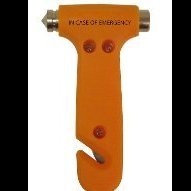Benzene May Hit 45 Baht Per Liter & Diesel Could Hit 38 Baht Per Liter In The Next Few Days
-
Recently Browsing 0 members
- No registered users viewing this page.
-
Topics
-
-
Popular Contributors
-
-
Latest posts...
-
7
Is Trump completely losing the plot?
Care to explain how an imported product, which now cost more to import, can decline in price for the end user? -
22
Report Thai Coconut Industry Ends Monkey Labour to Win Back Trust
Stop trying to make the monkeys as useless as the politicians! It was a big mistake to get the Monkey Union involved. They are unfair negotiators. -
38
USA Measles Resurgence in the U.S. Reaches 33-Year High Amid Vaccine Hesitancy
EU figures say something different: https://measles-rubella-monthly.ecdc.europa.eu/ from https://www.ecdc.europa.eu/en/measles/surveillance-and-disease-data Measles cases from 1 June 2024 to 31 May 2025 In the most recent 12-month period, from 1 June 2024 to 31 May 2025, 30 EU/EEA Member States reported a total of 17 940 cases of measles. Between 1 June 2024 and 31 May 2025, of the 17 940 cases with known age, 7 732 (43.1%) were in children aged under five years; and 5 243 (29.2%) cases were aged 15 years or above. The highest notification rates were observed in infants under one year of age (602.4 cases per million) and children aged 1-4 years (333.2 cases per million). Of 16 360 cases (100.0% of all cases) with a known age and vaccination status, 13 968 (85.4%) were unvaccinated, 1 446 (8.8%) were vaccinated with one dose of a measles-containing vaccine, 883 (5.4%) were vaccinated with two or more doses, and 39 (0.2%) were vaccinated with an unknown number of doses. During the 12-month period, 11 deaths (case fatality rate (CFR): 0.1) attributable to measles were reported to ECDC by Romania (eight), France (two) and Netherlands (one) (Figure 4). -
53
Report Tragedy Strikes: UK Man Passes in Thailand, Baby Born Days Later
More questions than answers relating to this article. -
4
Accident Coach Crash in Phetchaburi: Passengers Rescued After Vehicle Skids Off Wet Road
Speed caused it how is that an accident, an accident is something you have control over. -
53
-
-
Popular in The Pub

.thumb.jpeg.d2d19a66404642fd9ff62d6262fd153e.jpeg)











Recommended Posts
Create an account or sign in to comment
You need to be a member in order to leave a comment
Create an account
Sign up for a new account in our community. It's easy!
Register a new accountSign in
Already have an account? Sign in here.
Sign In Now